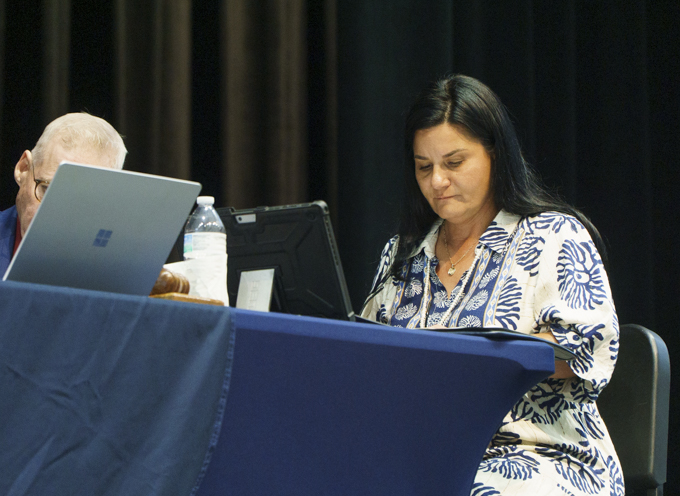How 10 inches of rain turned into deadly 30-foot wall of water in Texas
Published 9:14 pm Saturday, July 12, 2025
DALLAS — More than 100 people in Texas have been found dead after devastating flooding swept through the area in the early morning hours of July 4. Among the victims were nearly 30 young girls and their counselors at Camp Mystic, an all-girls Christian summer camp.
At least 161 people are still missing in Kerr County alone, Gov. Greg Abbott said earlier this week, for whom volunteers and first responders are still searching.
As families struggle to reckon with their losses, many Texans are still wondering how this flooding unfolded, why leaders didn’t expect it and whether it’s something that could happen again.
Trending
How the early hours of July 4 unfolded
Once the thunderstorms set up over the Texas Hill Country late on July 3, they didn’t move for hours.
Greg Waller, a hydrologist at West Gulf River Forecast Center, said the stationary nature of the storms is part of what allowed them to dump so much water in one location. While rainfall totals across the region vary, Waller said some spots were up to 10 or 11 inches of water on Friday.
But the large amount of precipitation alone didn’t cause the river to crest at such heights. In fact, Waller said other parts of Texas got even more rain, but don’t have the same hydrologic conditions that can be found in Kerr County.
As the name might suggest, the Hill Country has many steep slopes which contribute to large amounts of runoff. The rocky nature of the soil also limits water absorption. Where it’s not rock, it’s clay, which Waller said can swell and act as another impermeable surface.
“Think of all the moisture in the column of air directly above you,” Waller explained. “Well, when you’re in a sloped valley like that, it all funnels to one point. So it’s not really all the moisture over you, it’s all the moisture in the entire area focused into a funnel down into the river system.”
Waller said the rate of rain can be particularly crucial in flash flooding situations. The faster downpour limits soil absorption and increases runoff into the river system.
Trending
He also mentioned the social vulnerability of the storm moving in at night, on a holiday weekend. Many people in the county were visitors and were not as familiar with its weather patterns as locals.
That confluence of meteorologic conditions, topography and social circumstances combined to make the flooding so catastrophic, Waller said.
When it rains, it pours
In recent years, it seems the Texas Hill Country rarely has perfectly normal July rainfall. It’s either a drought or a deluge.
Using Fredericksburg as a proxy for the region, the average July rainfall over the last about 40 years is 2.2 inches. But most of the time, July seems to be closer to either extreme, whether it’s less than an inch or more than four.
Furthering that pattern, the years when July brings significant rainfall are seldom weeks of consistent precipitation, as sometimes happens in the Dallas-Fort Worth area. Instead, in the Hill Country, most of the month’s water arrives in just a few days of heavy downpours, according to historical data from the National Weather Service.
That pattern of intense rainfall exists in an area not well adapted to absorb it, as Waller described. It’s part of a corridor known as “Flash Flood Alley” where the steep terrain, shallow soil and intense rainfall rates make the environment particularly prone to sudden flooding, according to the Texas Water Development Board.
The Balcones Escarpment, a fault line that stretches from Del Rio to the Red River, follows a similar shape to the counties in Flash Flood Alley. It contributes to the rocky and hilly landscape that can make flooding so common, and sometimes deadly.
Whether in 1987, 1998 or 2002, cities and smaller communities across the Hill Country have repeatedly faced significant flooding damage and sometimes lost lives to the walls of water. The devastating scale of the fatalities in this year’s flooding feels unimaginable, but echoes prior tragedies, leaving Texans wondering if the state could have been better prepared.







